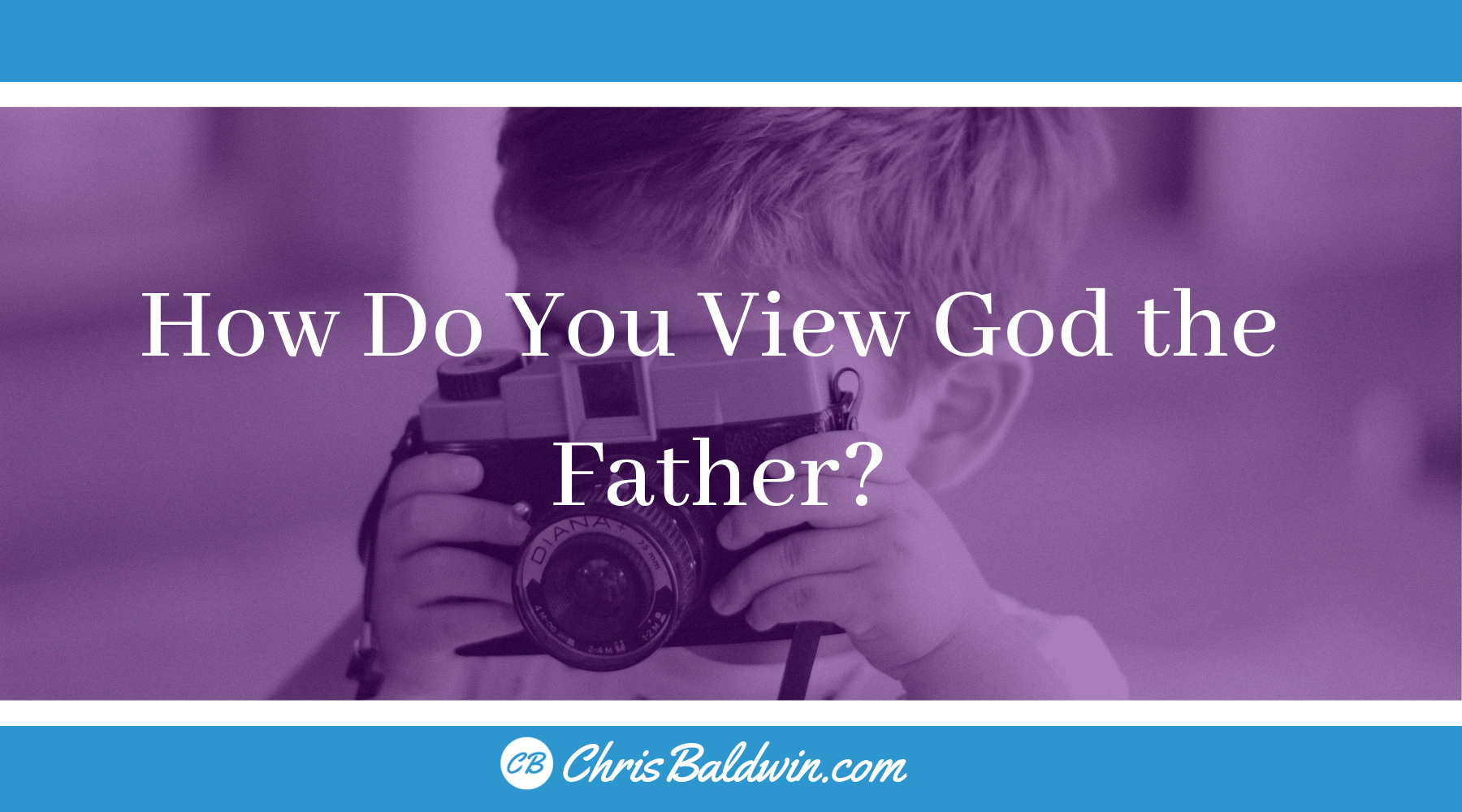My dad retired from the military a couple of years after being promoted to general. Likewise, he embodies the qualities you’d expect from a general. He’s strict and looks for achievements and performance. We never hugged growing up. When he left to go to Kuwait for a year, we shook hands. We never said, “I love you,” or showed emotion. Why am I talking about my dad? Well, because I viewed God the Father through the lens of my dad. God was like general to me.

We grow up learning how to view God in the same way we view our fathers. In my case I understood that Jesus saves me, Holy Spirit empowers me, and the Father governs me. I could picture Jesus standing in the gap for me pleading with His dad saying, “But Dad I really love Chris. He will do better. Look, Holy Spirit is helping him. So please be kind when you speak to Chris and don’t yell.” This was my interpretation of Romans 8:34, “…Christ Jesus is He who died, yes, rather who was raised, who is at the right hand of God, who also intercedes for us.” I spent my whole life thus far trying to please the Father just hoping He would be proud of me and not yell. As it turns out, God is good…like really good.
 The Father Dilemma
The Father Dilemma
We all face the same dilemma when viewing God the Father. That is, we see Him through the lens of our earthly dad. In his book, Blue Like Jazz, Donald Miller writes:
“I wonder why it is God refers to Himself as ‘Father’ at all. This, to me, in light of the earthly representation of the role, seems a marketing mistake. Why would God want to call Himself Father when so many fathers abandon their children?”
We each grow up learning how to act and behave based on our fathers. A father is someone that you gain your significance from. We need to learn to gain our significance from Father God and not allow our significance to be based on our own fathers. Our parents are not perfect as we are not perfect. God is.
I’m sure your parents did the best they could with what they were given. If your dad was abusive it was probably because his dad was abusive and so forth. If you never say, “I love you” to your children, chances are your children will never tell your grandchildren they are loved. Hurt people hurt people and loved people love people. We parent in the way that we were parented. This is way it’s so important we learn to see God the Father without a lens.
In her book, Finding Father, A.J. Jones states:
“How we see Father God determines whether we can receive love, security, acceptance, rest, comfort, provision, and healing in the Father’s Presence.”
The Two Most Important Beliefs
The two most important beliefs, which governs a persons life, are:
- How you view God.
- How you think God views you.
The way you view God is of the utmost importance. God is love and everything He does is out of love. It was hard for me to hear God say, “I love you,” because I wasn’t use to hearing a father saying those words. God is omnipresent, meaning He is always with you. If you grew up without a father or with one who was never home you might view God as absent or not interested in your life—you might view the Father as being too busy. He’s not. He loves you and is with you 24/7. You’re able to receive His love, security, acceptance, rest, comfort, provision, and healing 24/7. His love never runs dry. It never depletes. It’s not weaker when you mess up. His love is unwavering, even if you’re not able to perceive it due to faulty lenses.
Thoughts for Today:
- Take a moment today to consider how the way you view your dad impacts the way you view God.
- Ask God to revel Himself to you as your loving Dad.
- A father is someone you gain significance from; therefore, thank God today that, as your Father, your significance comes from Him alone.
- Find a moment in your busy day to get in the Father’s presence as you receive love, security, acceptance, rest, comfort, provision, and healing.
QUESTION: In what ways have you been viewing God the Father through the lens of your dad?
If you like this post, check out: Are You an Orphan or Son?



